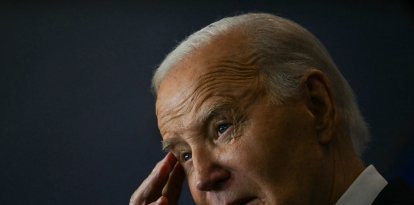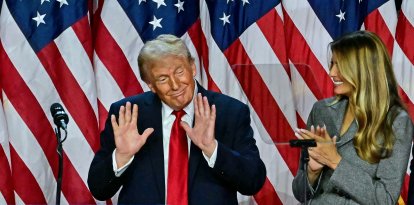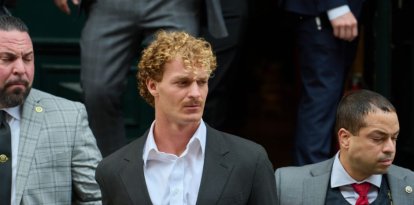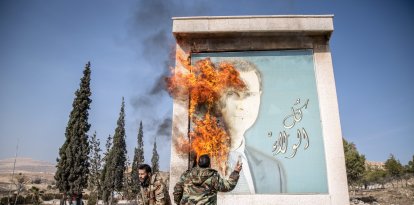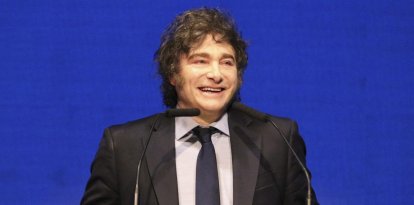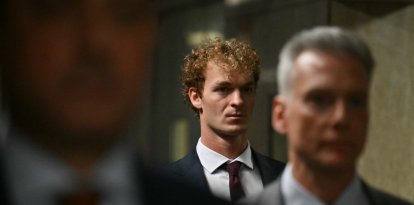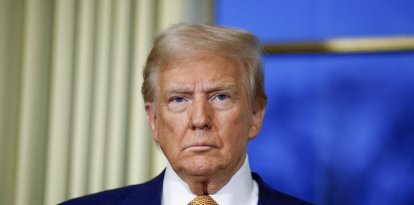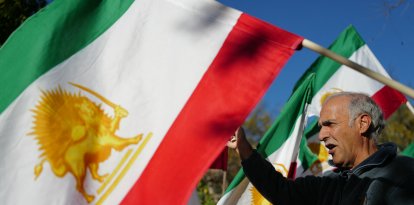Javier Milei is Argentines' latest gamble
The libertarian economist, who won in a landslide victory in the second round of the presidential election, went from being the fiery, wild-haired man on TV to being the voice of a nation lashing out against traditional politics.
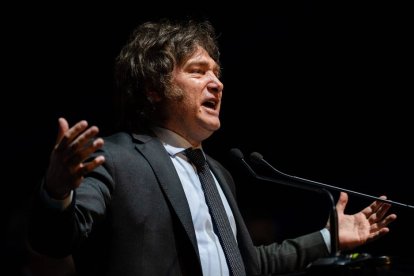
(Cordon Press)
Libertarian Deputy Javier Milei emerged victorious in the second round of the Argentine presidential election with an impressive 55.69% of the votes, compared to the 44.3% obtained by the ruling party's Peronist candidate, Sergio Massa.
How did the eccentric economist achieve such political success, and what likely awaits him as president?
It was 2013 when I first learned about the liberal economist Javier Milei. A few months earlier, I had returned to Buenos Aires, Argentina, after living almost seven years in Israel. After a short time in the country, I was invited to be part of a radio program called “Los Violinistas del Titanic” on FM Palermo, with Milei being one of our regular guests.
The economist's statements during the interviews were too technical; in fact, I must confess, I did not always understand what he was saying. His words seemed to be aimed at academics and not at the general public as we wanted. However, over time, he improved in this aspect to universalize his message.
At that time, Milei was already a guest on some well-known television and radio programs, not only because he presented ideas that were different from those usually heard, but also because of his charisma and his eccentric and passionate style of explaining the ideas of freedom. He was, shall we say, too original not to invite him to participate in political and economic debate programs. However, the time he was given to express himself was very limited, and he was soon interrupted to make room for others who repeated the same old slogans. Apparently, they were better served by their reputation than by their ideas.
However, in the short time he was given, he managed to get his ideas across in the best way possible, and we ended up debating what he had said. Of course, on some occasions, the discussions were very heated and Milei lost his temper, an aspect in which he has also been improving. Today, with some exceptions, he remains calm when responding to any argument, no matter how nonsensical it may be.
Soon, various TV hosts were giving him more and more of a platform to share his ideas, and his following increased. Suddenly, the Austrian School of Economics and the Chicago School of Economics began to receive attention in mainstream media. Names such as Hayek and Mises became well known, and demonized names such as Friedman were mentioned without hesitation. In addition, the importance of reducing public spending and regulations began to resonate very strongly. But above all, Milei was encouraged to say what he thought of many politicians, intellectuals and journalists to their faces. In fact, the concept of the "political caste" has spread in Argentina thanks to him.
From 'fiery TV madman' to presidential candidate
Milei, little by little, has gone from being the fiery, wild-haired guy to being the voice of a nation lashing out against traditional politics.
In 2017, when Milei was going through the transition from quaint TV madman to presidential candidate with serious chances of victory, I asked him to prologue my book, “Relatos de un Progre” (“Tales of a Progressive”). I was honored that he agreed to do so and that I had the opportunity to present it with him in April of that year. During the meetings I had with him prior to the writing of the foreword and the promotion of the book, I began to realize that Milei could never be a traditional politician. He is the same in his private life as he is in the media. He does not have 10 faces, let alone two. He has only one. One can agree or disagree with his words or his actions, but that is the way he is.
Of course, Milei made mistakes along the way. In 2018, he participated in a demonstration against the Mauricio Macri's government organized by the billionaire mafia trade unionist Hugo Moyano, secretary general of Camioneros and former secretary general of the CGT. I remember debating with people who had defended his actions, arguing that it was a good opportunity to spread ideas. However, from my point of view, it was not the best place to do so, as the people there were not confused or seeking to start a dialogue, but rather a show of force by a huge and well-organized mob.
Milei is not perfect, and he makes mistakes, and that is something everyone should understand. The cult of personality is not good for the country or for Milei himself. The economist's popularity has grown rapidly. After a series of failed governments, and especially in the context of deep economic crisis and soaring inflation, many people put great hope in this outsider because of the repeated failures of traditional politicians. Surely, most of those who voted for him do not know or do not understand exactly what his plan is to get the country out of the crisis. And starting Dec. 10, when he assumes the presidency, many of those coherent measures will have to go through several bureaucratic mafias related to Peronism and the left, who do not want to lose their privileges and have enough power to not let him govern. In fact, we can currently observe how, in spite of the resounding government of Alberto Fernández and Cristina Kirchner, in spite of the terrible situation the country finds itself in, the violent protests and strikes suffered under the Macri administration had little effect
Dollarization, Milei's big bet
Of all Milei's proposals, dollarization is the most resonant today because the Argentine peso has become extremely devalued, and it continues to fall. In reality, what the candidate is proposing is a free currency competition. The dollar is the most sought-after currency by Argentines to take refuge from the monetary disasters carried out by the government, and it also provides a reference value for the peso. Of course there are technical discussions as to how dollarization could be implemented, but it is good that the issue is at the center of the debate. And this is, perhaps, Milei's most important achievement: he shifted the paradigm of the discussion
The drawback that arises, as happens every time a movement becomes massive, is that the bad apples also begin to appear. There are all kinds of opportunists who seek fame, accommodations, or even impose harmful ideas under the guise of liberalism. The truth is that one can already begin to observe these problems in the party, so Milei must be attentive and know how to identify these dangers. In this sense, it is fitting that the economist, a Catholic by birth, expresses his admiration for the Jewish people and takes interest in studying the Torah. He has also said that he would like to move the Argentine embassy in Israel to Jerusalem and visit the Jewish state before assuming the presidency. In this way, he is keeping any antisemitic and xenophobic “Nazionalists” in La Libertad Avanza at bay.
In the aspect of international politics, Milei will move away from tyrannies and towards the free world. This is another point in favor for the economist in a country led by a government that insists on being on the wrong side of history, defending the most authoritarian regimes in the world, such as those of Venezuela, Cuba, Nicaragua, Iran, China, Russia, the territories under Palestinian control, etc.
Of course, there have been journalists who have set traps for Milei. On some occasions, he was asked if he agreed with a free market for organs or free carrying of weapons. Milei responded in favor of both policies, based on the principle of the individual's freedom to decide about his or her own body and to defend himself or herself against criminals. Perhaps he did not explain it in the best way for a society that is not prepared to listen to such statements, but let's be clear: he is right. However, he was heavily criticized, even by those who share his vision, because, according to them, he could lose votes for holding such views. However, I consider that if he wants to free himself from traditional politics, Milei has to say what he thinks, even if it costs him a vote here and there. He has shown that he can improve in this area and that he can achieve great political success despite his willingness to express contrary opinions on these issues.
Milei, for all his successes and flaws, has achieved something unthinkable, which is, as I mentioned before, to shift the paradigm of the debate. However, there are questions that remain unanswered. Will he be able to implement his policies? Will the mafias entrenched in the government, who are already threatening to commit acts of violence if their whims are not respected and the coffers with which they practice rancid populism are taken away, let him govern? I sincerely believe that he will not be able to govern, or it will be almost impossible for him to do so. I pray to God that I am wrong and that Argentina returns to being a prosperous country where people can conduct business with certainty, work in freedom, and go out on the street without fear of being killed by a criminal.
Milei as president will be the final test for Argentina. If he is allowed to govern, the country will have the possibility of backing away from the treacherous cliff where it has been perched for decades. If he is unable to advance with his policies, we will be able to confirm 100% that it is an unviable country and that, as they say in Argentina, "The only exit is Ezeiza [the location of Ministro Pistarini International Airport]."















